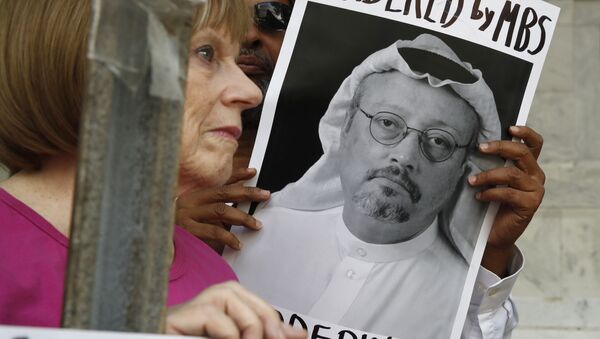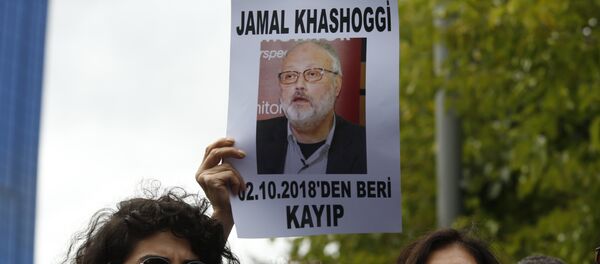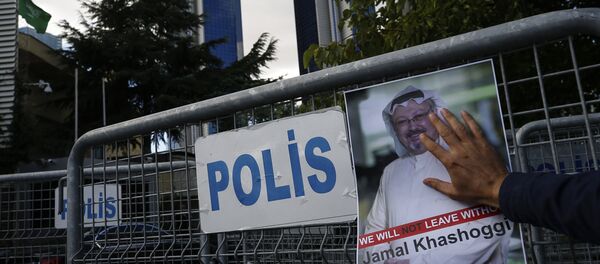"Let's pray that the stories and the news as presented from Turkish officials is untrue. Let's hope that Jamal is still alive." That's all Kempe, who is also the chief executive of the Atlantic Council, had to offer on MSNBC's "Morning Joe" program Monday after being asked whether there was "much to be concerned about in Saudi Arabia this morning." He then launched into tempered praise of Saudi Crown Prince Mohammad bin Salman, whom Max Boot, conservative journalist and Senior Fellow in National Security Studies at the Council on Foreign Relations, had just heavily criticized as talking out of both sides of his mouth about reforming the Saudi kingdom.
The think tank has avoided covering the Khashoggi story, which has potentially explosive implications if the worst accusations and suspicions are true, an uncharacteristic behavior for the international affairs-focused nonprofit. Saudi billionaire Bahaa Hariri and the Kingdom's closest ally, the United Arab Emirates, are two of the think tank's most generous financial supporters, according to the Atlantic Council's website.
The debate about whether or not the Saudi government — or bin Salman himself — had Khashoggi murdered by a hit squad in Istanbul last Tuesday hasn't been a diplomatic sideshow; it's having real-world consequences. Virgin Galactic's Richard Branson announced Thursday he was putting talks on hold with Saudi Arabia's sovereign wealth fund over a planned $1 billion investment in the space company, and former US Energy Secretary Ernest Moniz said Wednesday he was suspending his advisory role on Saudi Arabia's planned $500 billion megacity project NEOM until more is known about Khashoggi's disappearance, Sputnik reported.
And yet the Atlantic Council has in the last month shown willingness to take the Saudi state to task. The shroud of mystery surrounding the Khashoggi case can't be an explanation: within a month of the mysterious poisonings of Sergey and Yulia Skripal in Salisbury, UK, on March 4, 2018, the think tank published no less than 18 articles on the event and its various repercussions. The first such article appeared a week after the attack, and the think tank wasted no time adopting the established Western narrative, despite the utter lack of evidence furnished to support it even by now, seven months after the event.
So we're left with not one mystery, but two: what has happened to Jamal Khashoggi, and why doesn't the Atlantic Council think it's worth talking about?




